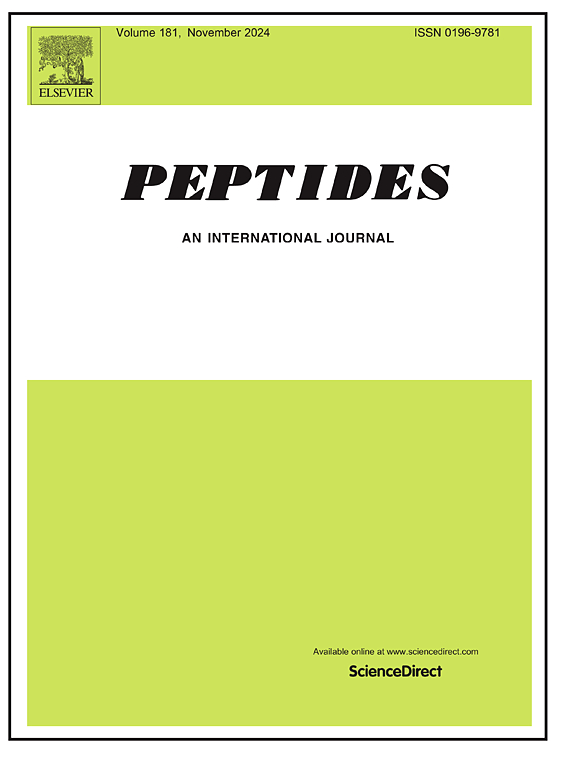Compensatory mechanisms underlying arginine vasopressin regulation in transient polyuria during pregnancy
IF 2.9
4区 医学
Q3 BIOCHEMISTRY & MOLECULAR BIOLOGY
引用次数: 0
Abstract
Transient polyuria during pregnancy is reportedly caused by increased arginine vasopressin (AVP) degradation due to vasopressinase produced by the placenta. The mechanism underlying transient polyuria during pregnancy has not been established. In this study we measured urine volume, urine osmolality, and AVP transcriptional activity during pregnancy in wild-type and familial neurohypophysial diabetes insipidus (FNDI) mice. The FNDI mice were used as a partial AVP deficiency model. Vasopressinase was shown to be present in the placentas of pregnant mice. The Avp hnRNA level in the supraoptic nucleus, which is indicative of AVP transcriptional activity, was upregulated in wild-type and FNDI mice during late pregnancy. FNDI mice, but not wild-type mice, had a significant increase in urine volume and a decrease in urine osmolality during pregnancy. These data suggest that an increase in urine volume during pregnancy only occurs when the compensatory increase in AVP release is insufficient to counteract degradation by vasopressinase.
妊娠期短暂性多尿精氨酸抗利尿素调节的补偿机制。
据报道,妊娠期间短暂性多尿是由胎盘产生的抗利尿酶导致精氨酸抗利尿素(AVP)降解增加引起的。妊娠期短暂性多尿的机制尚未确定。在这项研究中,我们测量了野生型和家族性尿崩症神经垂体性糖尿病(FNDI)小鼠妊娠期间的尿量、尿渗透压和AVP转录活性。以FNDI小鼠作为AVP部分缺乏症模型。抗利尿加压酶被证明存在于怀孕小鼠的胎盘中。野生型和FNDI小鼠在妊娠后期视上核Avp hnRNA水平上调,表明Avp转录活性。FNDI小鼠妊娠期尿量明显增加,尿渗透压明显降低,而野生型小鼠妊娠期尿渗透压明显降低。这些数据表明,怀孕期间尿量的增加只发生在AVP释放的代偿性增加不足以抵消抗利尿加压酶的降解时。
本文章由计算机程序翻译,如有差异,请以英文原文为准。
求助全文
约1分钟内获得全文
求助全文
来源期刊

Peptides
医学-生化与分子生物学
CiteScore
6.40
自引率
6.70%
发文量
130
审稿时长
28 days
期刊介绍:
Peptides is an international journal presenting original contributions on the biochemistry, physiology and pharmacology of biological active peptides, as well as their functions that relate to gastroenterology, endocrinology, and behavioral effects.
Peptides emphasizes all aspects of high profile peptide research in mammals and non-mammalian vertebrates. Special consideration can be given to plants and invertebrates. Submission of articles with clinical relevance is particularly encouraged.
 求助内容:
求助内容: 应助结果提醒方式:
应助结果提醒方式:


